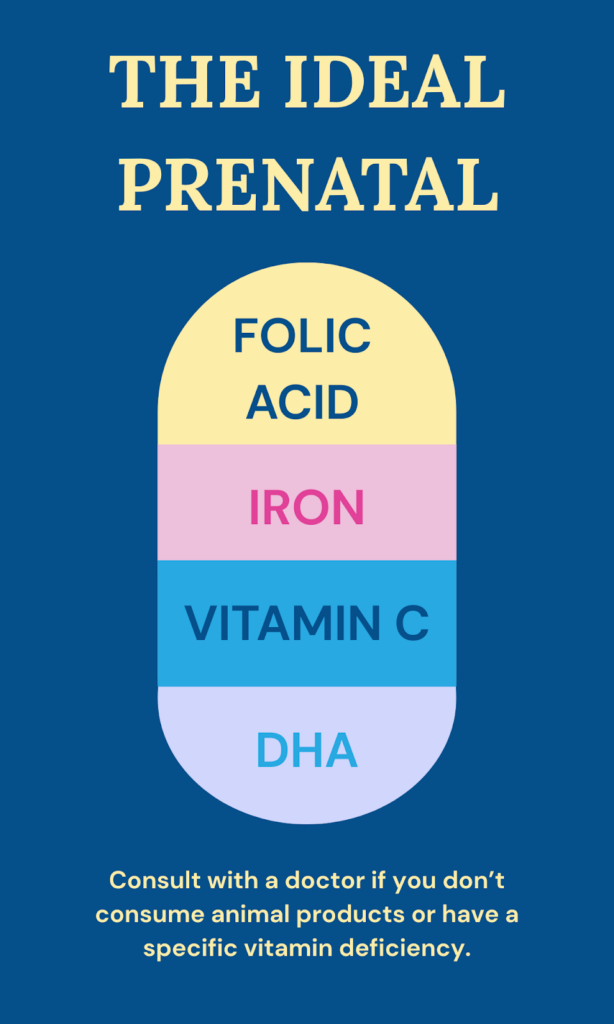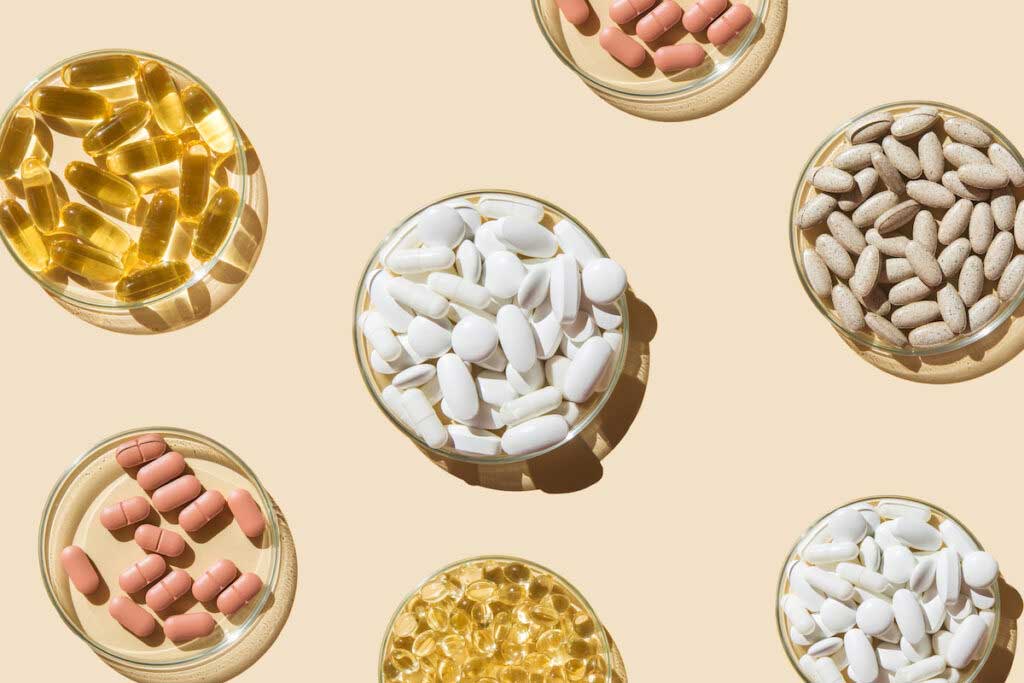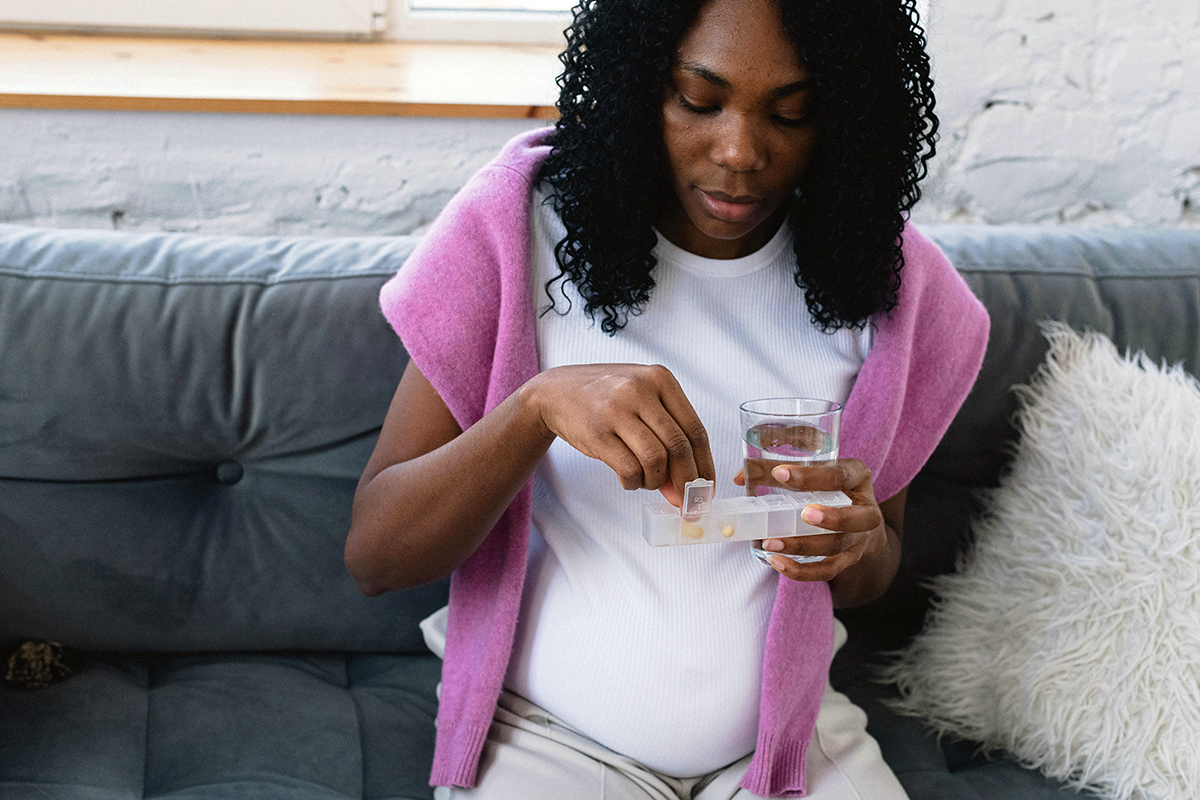If there is any product that seems designed to prey on our fears, it is prenatal vitamins. You’re newly pregnant or trying to get pregnant. You want to do it right — yet there are so many things that feel complicated. Everyone agrees you need prenatal vitamins, so you get them. But do you want to be that person who just buys the generic prenatal vitamins? Don’t you want the best prenatal vitamin? What is that “best” prenatal vitamin? You’re a sitting duck for ads that promise that paying more for prenatals will give you a better baby.
And that best baby is going to cost you, or it might not. On Amazon, prenatal vitamins range widely — at this writing, from 19 cents per pill up to over 80 cents — and outside of Amazon, these can cost even more. The question you face: Is there any reason to pay four times as much for one pill over another? You will likely take prenatals for a year and, sometimes, much longer, depending on your trying-to-conceive journey, so your choices here add up. I’ve said before that vitamins are mostly pointless for people in general, unless you have a specific vitamin deficiency. That said, there are some components of prenatal vitamins that you do need, some that are questionable, and many that are a waste. Let’s review.

What do you definitely (or very likely) need?
Folic acid
The number one thing you should have in your prenatal vitamin is folic acid (or folate). Folic acid has been shown in randomized trials to reduce the risk of neural tube defects by between 70% and 95%. Neural tube defects (like spina bifida) are rare already, but supplementation pushes them close to zero. The recommended dose is at least 400 micrograms (mcg) per day; higher is also okay.
There is a lot of debate on the internet about folic acid versus folate. Folate is the nutrient you need, and it’s found in food. Folic acid is a less expensive synthetic form of folate that your body can break down into folate. Prenatal vitamins can also contain folate directly. For some people, a genetic variant may limit their ability to break down folic acid into folate. However, there isn’t any strong evidence to suggest that folate is better; this suggests that the vast majority of people are able to use folic acid to a sufficient degree. And the randomized trials all use folic acid. There isn’t anything wrong with folate, but it’s also unnecessary to pay more for it.
Iron (+ vitamin C)
Anemia (low iron) is a common issue for women in general and pregnant and postpartum women in particular. Anemia can cause low energy, fatigue, depression, and dizziness. Most pregnant women should be screened for low iron and, in extreme cases, may need more than supplementation. But a very large share of women would benefit from an iron supplement during pregnancy. An easy way to get it is in your prenatal vitamin; you generally need about 30 mg of iron per day, and most prenatals have this amount.
You also want vitamin C in your vitamin because it helps absorb iron. It’s otherwise useless (see below), but it matters here.
(Yes, you can have too much iron, although it is not common. This is why a blood test is useful.)
Vitamin B12
Vitamin B12 is necessary if you do not eat animal products, as that’s the only place to get it otherwise. This is a supplement you’re likely taking regularly if you’re in this group, but it’s especially important in pregnancy.
Specific vitamin deficiencies
I want to call out: you might have a specific vitamin deficiency. It’s not that likely! But if you do, you should be taking a supplement, whether pregnant or not. If you eat a solely plant-based diet, there are a few other nutrients (iodine, zinc) that you’re more likely to be deficient in. Again, this is broader than pregnancy.
What has mixed evidence?
DHA
DHA is an omega-3 fatty acid that is found in cold-water fish. It’s also possible to get it in supplement form through fish oil. There is a lot of speculation that DHA consumption during pregnancy could improve kids’ cognitive development.
The data is, at best, pretty mixed. There is, for example, a sizable randomized trial with follow-up at 18 months, 4 years, and 7 years that showed no impact of DHA supplementation on cognitive test performance. Then we have a second randomized trial, which shows impacts on one cognitive test but not another at age 5. Overall, as a Cochrane review of trials points out, there is little evidence to support the value of DHA in development. (There is plenty of data showing that DHA consumption and child development are correlated, but that evidence is unlikely to be causal, due to differences across women.)
However, fish oil supplements do seem to reduce the risk of preterm birth and preeclampsia in trials. This is probably the best reason to consider a prenatal that includes DHA.
Choline
Choline is a nutrient found in a variety of animal products, especially fatty ones (salmon, eggs, beef liver, etc.). It’s important for brain function, so there is the idea that it might also be important for fetal brain development. There is some animal model evidence that might support this. There are also a couple of (very small) randomized trials in humans that show impacts of supplementation on cognitive function in elementary school.
I’m skeptical of these studies for some of the reasons discussed in this post on p-hacking. The studies are not really large enough to be powered to find the effects that they do, so this makes me worry about publication bias. In the end, it feels like a theoretical possibility that is probably not important in practice. Systematic reviews of the data support this conclusion.
To the extent that there is value in choline supplementation, it would likely be greater if you currently consume fewer animal products in your diet.
Vitamin D and calcium
There are theoretical reasons why calcium might be beneficial during pregnancy, mostly if you consume a diet with very low calcium. Similarly, vitamin D is broadly relevant for bone health, so it seems like it might be important. But we don’t have any concrete data suggesting there is some known threshold that matters.
What don’t you need?
A typical prenatal vitamin contains most or all of the above nutrients, plus a lot of other stuff. This includes (typically) vitamin A, vitamin E, vitamin K, thiamin, riboflavin, niacin, biotin, magnesium, and zinc. Sometimes there are others.
There is no compelling evidence that these are necessary in pregnancy or otherwise for nearly all people. It’s not that they are bad for you (at least not at the levels they are in the vitamins); it’s just that they are unnecessary. You definitely should not pay more for them.
The ideal prenatal
Here’s what you want in your prenatal vitamin:
- Folic acid
- Iron
- Vitamin C
- DHA (for the preterm birth benefits)
If you do not consume animal products, add B12, plus a few others, depending on your diet.

That is it. Any prenatal vitamin that contains these is enough. And lest you be concerned that you need to buy an expensive prenatal because some vitamins are created differently, they aren’t. Vitamins are just vitamins. If they come in a fancy pill that looks like it’s full of gold (I’m looking at you, Ritual), it does not make them any different.
You can find an inexpensive prenatal vitamin that contains the above. Actually, what’s hard is to find one that doesn’t have all the other things. Fortunately, it’s fine to have them even if they don’t matter.
This list is good to keep in mind if you’re struggling with getting these pills down, especially during the first trimester. Folic acid is by far the most important. If you just took a single-ingredient folic acid pill, you would get a huge share of the most evidence-based benefits.
So that’s it; prenatals are simple! Save money by buying something cheap. Trust me that there will be plenty of adorable onesies to spend it on later.
P.S. Before you ask, no, you do not need to take your prenatal after birth, even if you are breastfeeding. You might need iron, but the rest is a waste.
The bottom line
- The most evidence-backed ingredients in a prenatal are folic acid, iron (with vitamin C for absorption), and B12 if you don’t consume animal products. Folic acid alone provides the majority of proven benefits.
- Nutrients like DHA, choline, and vitamin D/calcium have some theoretical or limited benefits, but the data is not strong.
- Most other common ingredients (vitamin A, E, K, thiamin, riboflavin, biotin, magnesium, zinc, etc.) are not harmful but add no proven value for most people.
- Expensive prenatal brands are no better than inexpensive generics — vitamins are just vitamins. The key is checking that your pill contains the core essentials, not paying for marketing.
- Postpartum, only iron may be helpful; continuing full prenatals is unnecessary.





















Log in
What is a good amount of iron in prenatal vitamins? I’m 16 weeks pregnant and I was recently diagnosed with low iron. My current prenatal vitamins have 13.5 mg of iron— is that enough?
Couldn’t one achieve the necessary levels of DHA by consuming salmon regularly?
What about for postnatal? Do you need any of these if you are breastfeeding?
I discovered at my baby’s 4 month appointment that the prenatal I had been taking throughout pregnancy does not contain iron. I never thought to check because why wouldn’t it?! I was anemic during pregnancy and took an extra iron, plus vitamin C, supplement every other day but now I am wondering if it was enough? And are there any long term implications for my baby because the original prenatal did not contain iron?
Midwife here! Prenatal vitamins generally contain low levels of iron compared to the supplements recommended if you’re actually anemic, so you for much more than people just taking a prenatal would get. Severe anemia can increase some adverse pregnancy outcomes (like low birth weight and preterm birth), but no reason to worry about baby specifically because prenatal didn’t contain iron 🙂
*got much more
When I was pregnant I broke out in hives in my first trimester. My ob suggested I switch my prenatal to a food based one, which fixed the problem. I’d be interested to know if there is data supporting more of these types of reactions with synthetic ingredients… I ended up with preeclampsia and HELLP syndrome so clearly there was some inflammatory stuff going on…
What about calcium and vitamin d in a breastfeeding vitamin? Are those necessary? Have heard breastfeeding is rough on your bones
While I really appreciate Emily’s work, I personally look to people who actually specialize in nutrition and interpreting nutrition research when it comes to things like supplementation. I think a lot of the complexity is missed in the information Emily provides (and she’s not an expert in everything, so that’s understandable!). Lily Nichols, the author of the books Real Food for Pregnancy and Real Food for Gestational Diabetes, has dug deep into all of this so she is my go-to source of information for nutrition and supplementation in pregnancy and while breastfeeding. Here’s her post on Vitamin D supplementation while breastfeeding: https://lilynicholsrdn.com/vitamin-d-supplement-breastfeeding-mothers-how-much/